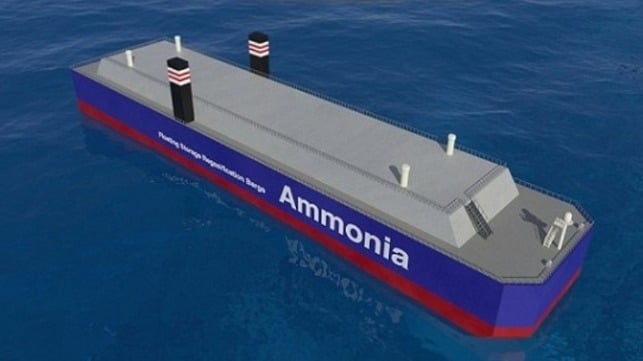Japan Sets Ambitious Targets for Ammonia as a Fuel

Japan's powerful Ministry of Economy, Trade and Industry (METI) has mapped out a plan to add 30 million tonnes per year of renewable ammonia to the country's fuel mix by 2050, intending to reduce emissions from legacy power plants and from Japanese shipping.
METI is aiming to substitute 20 percent of the coal supply for Japan's coal-fired power stations with ammonia by 2030, rising to 50-plus percent over time. The ultimate goal is to build out ammonia-fired powerplants as a part of a new low-carbon power mix, in addition to offshore wind and nuclear.
Ammonia imports could also be used as marine fuel, and Japanese shipowner NYK is working with Japan Marine United and ClassNK on the design of an ammonia-powered ammonia gas carrier. LNG carriers were among the first LNG-fueled vessels, and ammonia carriers might well be the world's first ammonia-powered ships. “It is expected that the use of ammonia, which is the cargo, as a marine fuel will contribute to the early realization of zero emissions for oceangoing vessels,” NYK said in announcing the project last year.
To acquire an adequate supply of renewable ammonia, METI is casting a wide net. As an example of the scale required to produce green ammonia, the Australian Renewable Energy Hub (AREH) will use onshore wind and solar installations covering 2,500 square miles of Australian desert to produce 10 million tonnes per year.

that matters most
Get the latest maritime news delivered to your inbox daily.
The other option - blue ammonia - is based on steam reformation of a petroleum product, typically natural gas, yielding hydrogen and CO2. A high percentage of the CO2 must be captured and sequestered in order to make a low-carbon product, and carbon capture technology is not yet fully refined.
Last month, METI and the Abu Dhabi National Oil Company (ADNOC) signed an MoU on demonstrating natural gas-to-blue ammonia production and working together to "expand the market." ADNOC currently operates a trial-scale CO2 capture plant at a facility operated by Emirates Steel Industries, with plans to install comparable equipment at a gas processing facility.
